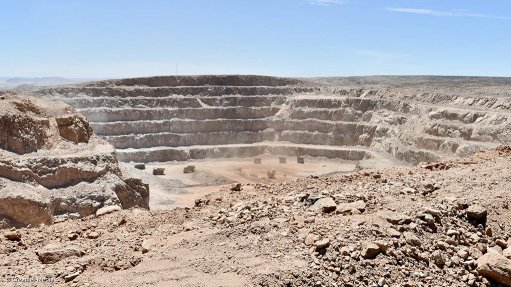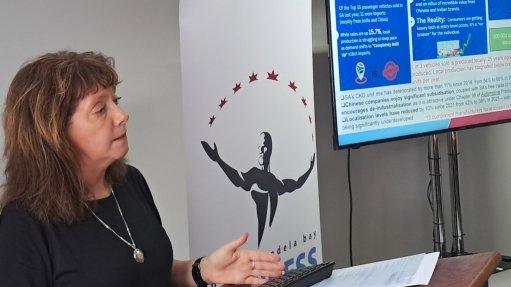Waste materials are actually valuable raw materials
Waste materials are actually raw materials with economic and other value. So highlighted Mota-Engil Environment (part of the Portugal-based multinational Mota-Engil group) chairperson and CEO Emilio Pinheiro in his address to the International Solid Waste Association (ISWA) conference, at the Cape Town International Convention Centre, on Monday. (This is the first time that the ISWA conference is being held in Africa.)
Managing waste was really an issue of managing resources, he affirmed. For example, his group had worked on projects that had converted construction waste into building materials.
And organic waste was too valuable to just throw away. It could be converted into fertiliser or used to generate energy.
Energy, which was part of every process, could be produced by a wide variety of wastes and in different ways. “By viewing waste as a resource, we are transforming the energy landscape,” he pointed out.
Regarding waste as a resource facilitated the closing of open dump sites. “Dump sites are still a harsh reality in many parts of the world.” Such sites were hazardous to the neighbouring communities as well as being threats to the environment. “We are proud to have closed dozens of dump sites in Portugal,” he cited. One of those former dump sites was now a public park.
However, although the objective might be the same, everywhere, how to reach that objective had to be individually tailored for each and every country. One concept definitely didn’t fit all. He affirmed that, while one could start with global models, these always had to be adapted to local conditions. It was another application of the old business adage: think global, act local. It was necessary to understand local cultural practices and companies should work with the local communities.
“We believe that environmental education is fundamental,” said Pinheiro. Environmental education could turn ordinary citizens from waste producers into effective resource managers.
Article Enquiry
Email Article
Save Article
Feedback
To advertise email advertising@creamermedia.co.za or click here
Press Office
Announcements
What's On
Subscribe to improve your user experience...
Option 1 (equivalent of R125 a month):
Receive a weekly copy of Creamer Media's Engineering News & Mining Weekly magazine
(print copy for those in South Africa and e-magazine for those outside of South Africa)
Receive daily email newsletters
Access to full search results
Access archive of magazine back copies
Access to Projects in Progress
Access to ONE Research Report of your choice in PDF format
Option 2 (equivalent of R375 a month):
All benefits from Option 1
PLUS
Access to Creamer Media's Research Channel Africa for ALL Research Reports, in PDF format, on various industrial and mining sectors
including Electricity; Water; Energy Transition; Hydrogen; Roads, Rail and Ports; Coal; Gold; Platinum; Battery Metals; etc.
Already a subscriber?
Forgotten your password?
Receive weekly copy of Creamer Media's Engineering News & Mining Weekly magazine (print copy for those in South Africa and e-magazine for those outside of South Africa)
➕
Recieve daily email newsletters
➕
Access to full search results
➕
Access archive of magazine back copies
➕
Access to Projects in Progress
➕
Access to ONE Research Report of your choice in PDF format
RESEARCH CHANNEL AFRICA
R4500 (equivalent of R375 a month)
SUBSCRIBEAll benefits from Option 1
➕
Access to Creamer Media's Research Channel Africa for ALL Research Reports on various industrial and mining sectors, in PDF format, including on:
Electricity
➕
Water
➕
Energy Transition
➕
Hydrogen
➕
Roads, Rail and Ports
➕
Coal
➕
Gold
➕
Platinum
➕
Battery Metals
➕
etc.
Receive all benefits from Option 1 or Option 2 delivered to numerous people at your company
➕
Multiple User names and Passwords for simultaneous log-ins
➕
Intranet integration access to all in your organisation


















